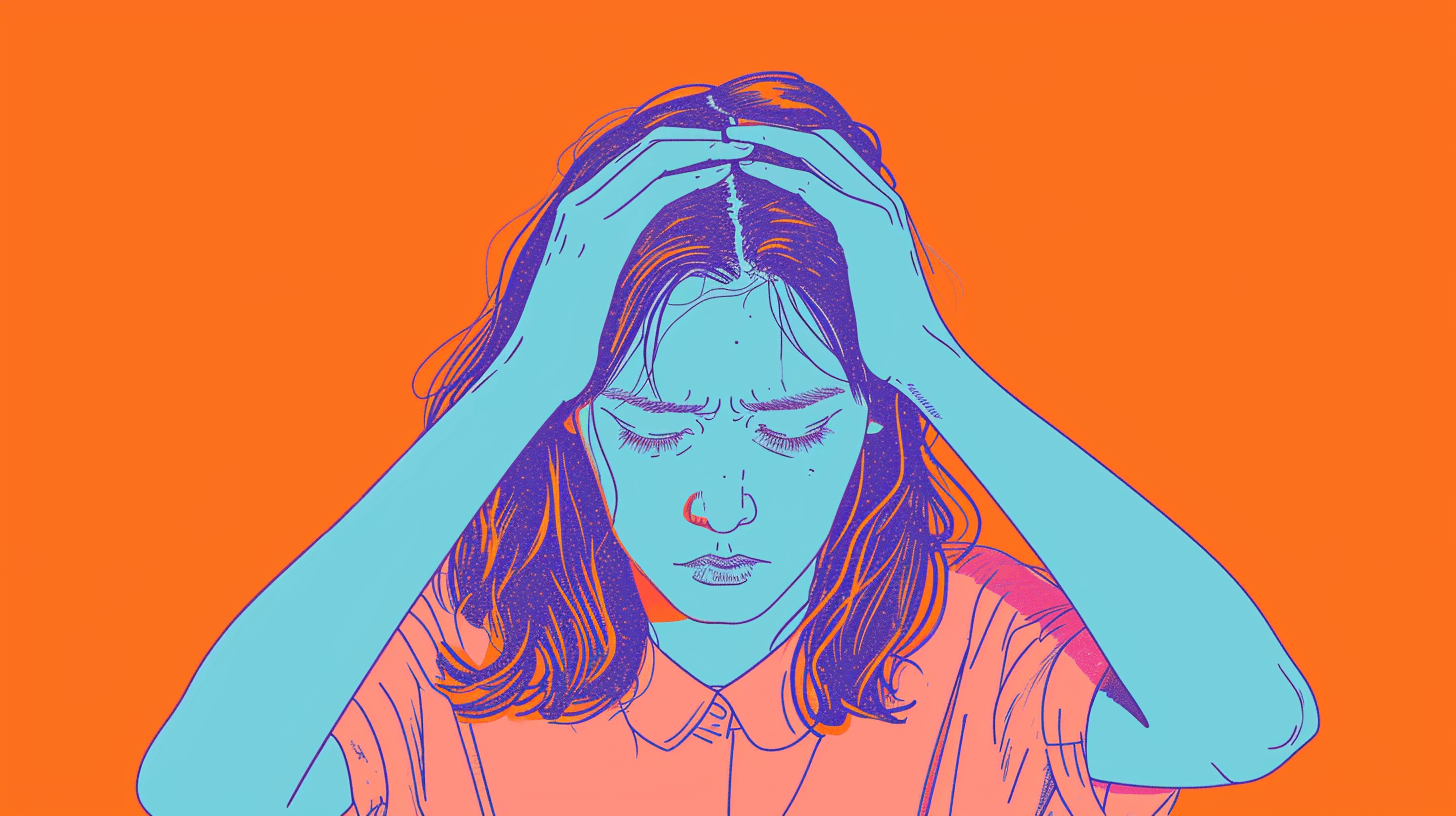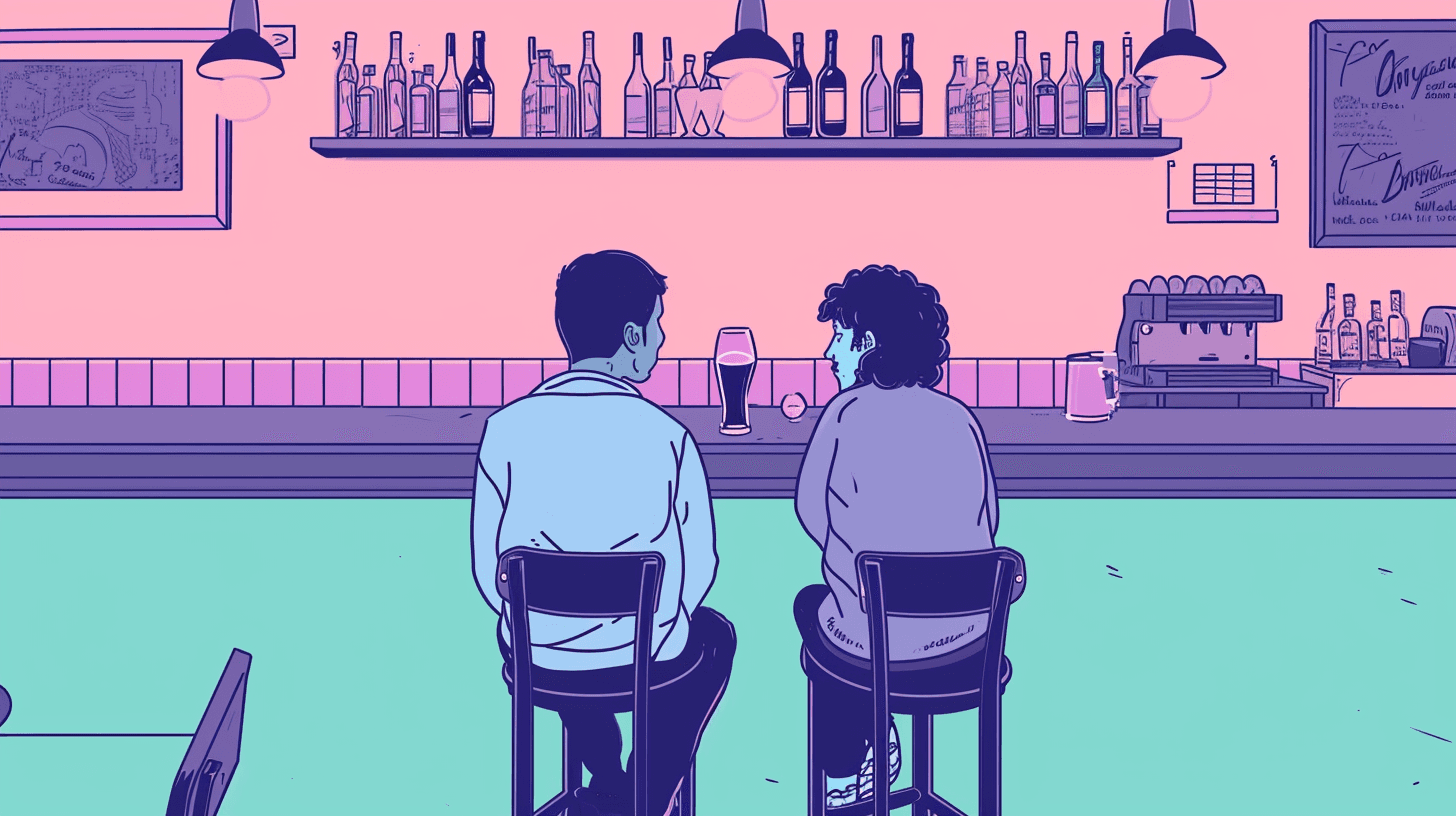Social Anxiety: The Uninvited Guest in Your Head
Screen design, once confined to bulky desktop monitors, now spans a myriad of devices, from the smartphone in your pocket to the VR headset in your living room. Designing for these diverse mediums requires not just an understanding of aesthetics, but of human behavior and ergonomics.
Aug 28, 2023
Anxiety
5 min
Introduction
You know the feeling. That prickly, gut-wrenching sensation crawling up your spine as you step into a room full of people. It’s like walking into a party where everyone was just talking about you, but now they're not. Welcome to the rollercoaster of social anxiety, the uninvited guest in your mental house party.
Social anxiety isn't just about being shy. It's about feeling like you're constantly under a microscope, scrutinized by an invisible jury. It’s the voice in your head that doesn’t just whisper but screams, “You’re doing it all wrong.” It’s that relentless fear of judgment that turns every social interaction into a potential horror movie scene. And the kicker? Most people around you don’t even have a clue about this internal battle.
In the following sections, we're going to dissect this beast, understand its roots, and explore the minefield it lays in our daily lives. We'll also look at ways to tame it, or at least coexist with it without losing our minds. Buckle up, it’s going to be a raw, maybe even uncomfortable ride, but hey, what’s life without a bit of edgy discomfort?
The Unseen Battles: What is Social Anxiety?
More Than Just Shyness
Calling social anxiety 'shyness' is like calling a hurricane a 'little rain'. It's not about being a wallflower at parties. It's about feeling like the walls are actually closing in on you. Social anxiety is that voice in your head that constantly questions every action, every word, and every glance. It’s like having a relentless film critic in your brain, except the only movie on show is your life, and let's just say, the critic isn't a fan.
The Inner Monologue of Doom
Imagine this: You’re about to say something in a group, and your brain does a last-minute security check, like it’s freaking Fort Knox. “Is this funny? Is it smart? Will they think I’m weird? Better not say it.” This is the daily reality for someone with social anxiety. It's an endless stream of second-guessing and self-censorship. It's exhausting, like being in a boxing match against your own thoughts, and spoiler alert: your thoughts are winning.
The Why Factor: Causes of Social Anxiety
Genetics? Maybe. Environment? Probably.
Is social anxiety in your DNA? Possibly. Some scientists say you might inherit this delightful trait. Thanks, ancestors. But it’s not all about genetics. It’s like being handed down a family heirloom, except it’s a suitcase filled with anxiety. Environment plays a huge role too. Maybe it was that overbearing parent, or perhaps the school bully who deserves a special shoutout for their contribution. It's like a cocktail of experiences, shaken, not stirred, that ends up spiking your brain's wiring.
Thanks, Society!
Let's give a round of applause to society, the silent contributor to social anxiety. In a world where social media reigns supreme, and everyone's life looks like a highlight reel, it's easy to feel like you're not measuring up. Society’s unrealistic standards have set the stage where everyone feels they need to perform. It's like being in a reality show where you're both the star and the most avid viewer, critiquing your every move. Bravo, society, for adding that extra layer of pressure.
Living in a Social Minefield: Everyday Impacts
Routine or Russian Roulette?
For most people, daily activities like making a phone call or attending a meeting are just mundane tasks. But for those with social anxiety, these are akin to playing Russian Roulette with your peace of mind. Each interaction is a potential trigger. A simple “hello” can feel like defusing a bomb, where saying the wrong wire could lead to social catastrophe. The grocery store becomes a battleground, and an unexpected phone call? That's like a surprise ambush.
Relationships? Good Luck!
Navigating relationships when you have social anxiety is like trying to dance on a tightrope. In friendships, there's the constant fear of being too much or not enough. In romantic relationships, it's like being in a rom-com, except you're the character who thinks every silence is an impending breakup. Professional relationships? Imagine having a performance review, every single day. Every interaction is fraught with the danger of misinterpretation, leading to a lonely paradox: craving human connection but being petrified of it.
Fighting Back: Managing and Overcoming Social Anxiety
Therapy: Not Just for Sitcoms
Contrary to popular sitcom scenarios, therapy isn’t just sitting on a couch, talking about your childhood while someone nods and scribbles notes. It’s more like having a personal trainer for your brain. Cognitive-behavioral therapy, for instance, is like mental gymnastics. It helps you challenge those pesky, irrational thoughts and replace them with less dramatic, more reasonable ones. It’s not a magic cure, but it can be a game-changer. Like turning down the volume of that inner critic so you can actually hear yourself think.
Self-Help: DIY Mental Health
If therapy is the gym, then self-help is the home workout of mental health. It's about finding strategies that work for you, whether it's mindfulness, breathing exercises, or just journaling your thoughts. It’s not about becoming an overnight Zen master. It’s more like becoming a decent DJ for your own anxiety playlist, knowing what to play and what to skip. And remember, self-help isn’t selfish. It’s self-preservation.
Conclusion: Embracing the Chaos
So, there you have it. Social anxiety isn't just a quirk or a phase; it's a real, often debilitating condition. But it's not the end of the story. Like any great narrative, there's room for growth, for plot twists, for turning points. Embrace the chaos, the discomfort, the challenges. They make the moments of peace, the victories, however small, so much sweeter. Social anxiety might be part of your story, but it doesn't have to be the protagonist. You're the author here. So, keep writing.


